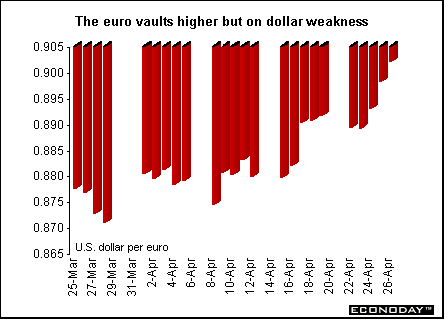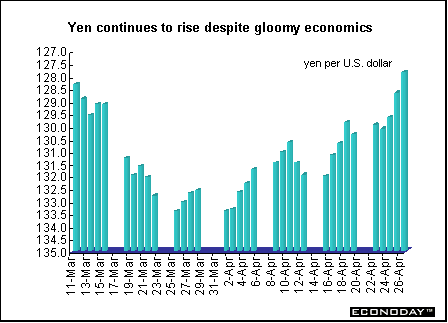 |

Currencies
The euro rose last week, but not on news within the EMU. Rather it rose because of dollar weakness. Analysts say the U.S. equity market is no longer outpacing its rivals, presenting a potential dilemma for the United States. Huge capital inflows have made it possible for the United States to finance its merchandise trade deficit with the rest of the world. With these flows no longer available, the dollar would have to fall in value. This could have inflationary implications for the United States as foreign goods become more expensive, which in turn would make imports less attractive to U.S. buyers. Needless to say, this is a double-edged sword. Exporters, who have been looking to the United States to grow themselves out of their recessions, may now have to look elsewhere.

Despite the continued stream of negative economic data, the yen continues to rise. Official rhetoric has been muted thus far. But the higher the value of the yen, the more precarious the earnings outlook for key exporters. In a market saturated with negative Japanese news, the gains are baffling many market participants. But analysts see a number of factors contributing to the yen's recent strength, including suspicions that Japanese authorities want a stronger yen - at least temporarily in the period prior to the June Group of Seven summit.



Last Week's Highlights • Global Stock Market Indexes • Recap of Global Markets • Currencies • Indicator Scoreboard

The Bottom Line • Looking Ahead
|
 |